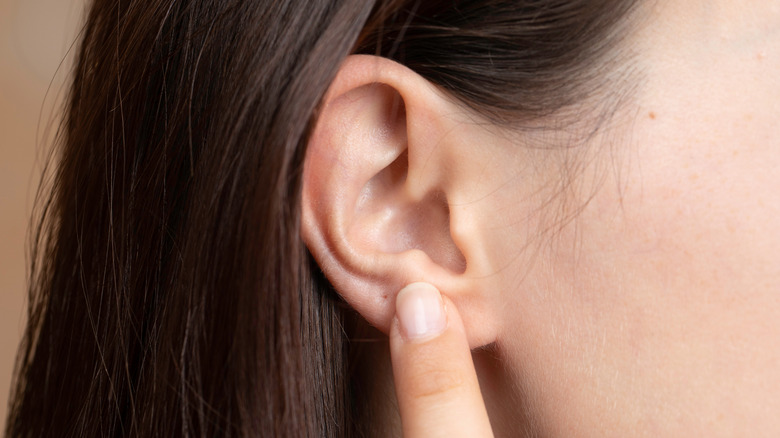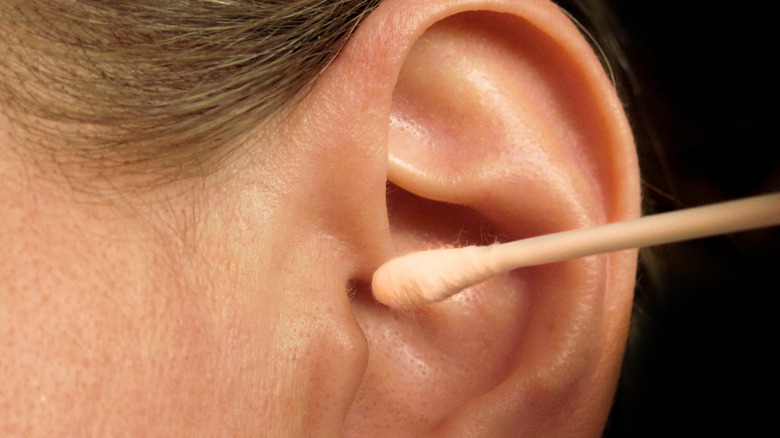How Often Should You Clean Out Your Ears?
While you may use cotton swabs to clean your ears, this practice is actually completely unnecessary and may in fact be harmful (via Harvard Health Publishing). The ear is self-cleaning, and earwax serves an important purpose to prevent dirt, bacteria, and other debris from reaching the inner ear (via Healthline). It also works as a natural moisturizer and prevents the skin inside the ear from becoming too dry. Having earwax is not a sign of poor hygiene, and there's no need to try to clean it out. In fact, most wax will work its way out of the body naturally during jaw motions like chewing, meaning most people will never need to clean out their ears.
Still, some people do produce more wax than others and may need to see a doctor for earwax removal. This would only happen if earwax buildup causes symptoms like pain, itching, ringing in the ears, feeling like the ear is plugged, and hearing loss, or if earwax keeps your doctor from being able to perform an exam (via WebMD). While rare, this may mean you have a condition called cerumen impaction, which means earwax has completely filled your ear canal. Your doctor can use special devices that use suction or irrigation to remove earwax buildup.
Dangers of cleaning out your ears at home
Sticking cotton swabs or other objects into your ears to clean out earwax does not come without risk. According to Harvard Health Publishing, this may push wax further into the ear canal, making it more difficult to remove. Clumps of earwax pushed deep into the ear near the eardrum can lead to painful infections. It can also lead to hearing loss.
If you still want to clean your ears, stick to cleaning the outsides. Use a washcloth to gently rub the area (via WebMD). Talk to your doctor about using over-the-counter wax removal kits. In addition to avoiding cotton swabs or pointy objects to clean out your ears, avoid using ear candles. These candles are meant to draw wax from the ears by sticking one end in the ear and lighting the other. However, the US Food & Drug Administration has determined the practice to be unsafe, finding it may cause burns and may even pierce the inside of the ear.


